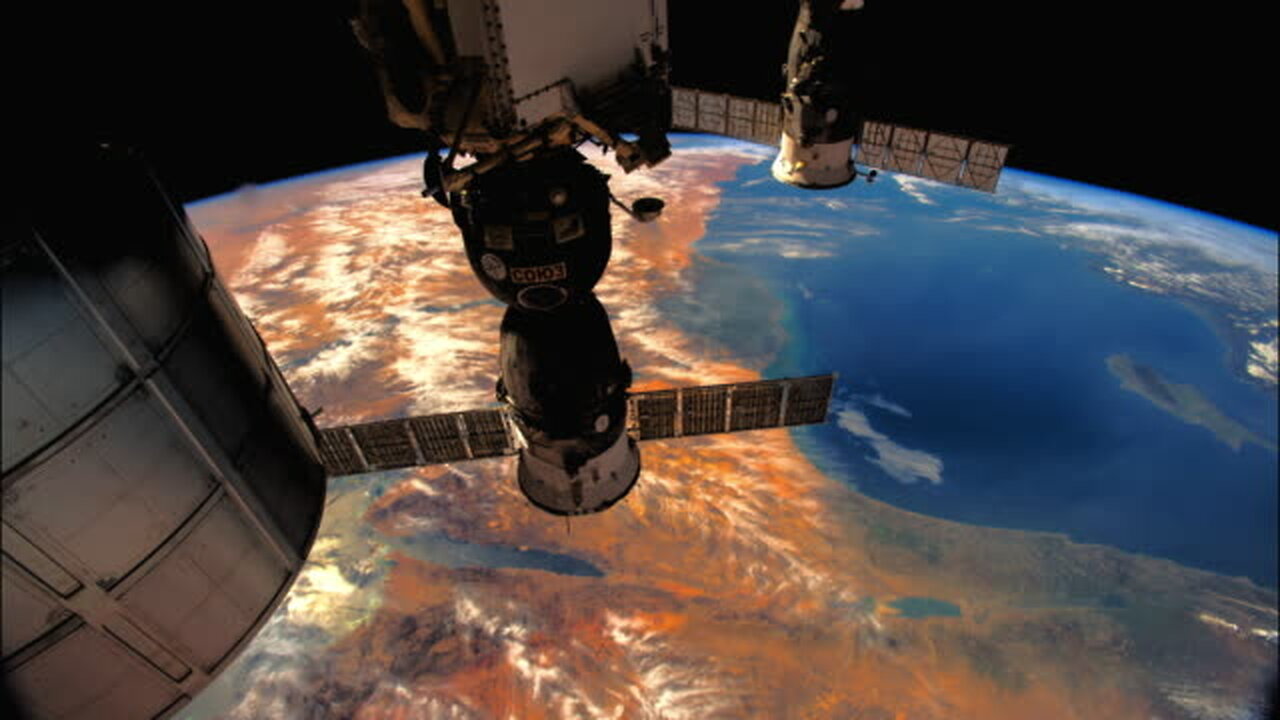Premium Only Content

Life on Board the International Space Station
Life on Board the International Space Station: from launch to return - A vida na estação espacial - Terra Plana
The International Space Station is a space station, or a habitable artificial satellite, in low Earth orbit. Its first component launched into orbit in 1998, and the ISS is now the largest artificial body in orbit and can often be seen with the naked eye from Earth.
The lSS consists of pressurised modules, external trusses, solar arrays, and other components. lSS components have been launched by Russian Proton and Soyuz rockets, and American Space Shuttles.
The ISS serves as a microgravity and space environment research laboratory in which crew members conduct experiments in biology, human biology, physics, astronomy, meteorology, and other fields. The station is suited for the testing of spacecraft systems and equipment required for missions to the Moon and Mars. The lSS maintains an orbit with an altitude of between 330 and 435 km (205 and 270 mi) by means of reboost manoeuvres using the engines of the Zvezda module or visiting spacecraft. It completes 15.54 orbits per day.
-
 LIVE
LIVE
LumpyPotatoX2
1 hour agoKOMPETE: Quick Gameplay - #RumbleGaming
162 watching -
 54:47
54:47
Side Scrollers Podcast
1 day agoSide Scroller Presents KING OF THE KART | MASSIVE MARIO KART TOURNAMENT
65.4K2 -
 33:18
33:18
Athlete & Artist Show
10 hours ago $2.00 earnedHockey Is Back In Europe!
16K2 -
 LIVE
LIVE
Total Horse Channel
3 hours ago2025 URCHA Futurity | Derby & Horse Show | Sunday
143 watching -
 2:16:57
2:16:57
XxXAztecwarrior
2 hours agoSearching for more Reds!!
5.94K -

TheItalianCEO
2 hours agoWhat about an Italian for breakfast?
8.54K -
 9:06
9:06
nospeedlimitgermany
1 day ago $1.16 earnedMercedes-Benz 500 SE W126 | 231 PS | Top Speed Drive German Autobahn No Speed Limit POV
13.8K2 -
 LIVE
LIVE
IamNibz
4 hours ago $0.53 earnedLaw 56- Elden Ring Challenge (PC)
73 watching -
 39:33
39:33
Chris Harden
7 days ago $1.84 earnedKansas Backroads | What's Really Out Here? - Rush County
9.04K13 -
 23:49
23:49
marcushouse
1 day ago $1.08 earnedStarship Flight 10 Secrets Revealed & Future of Starbase! 🔥
9.5K6